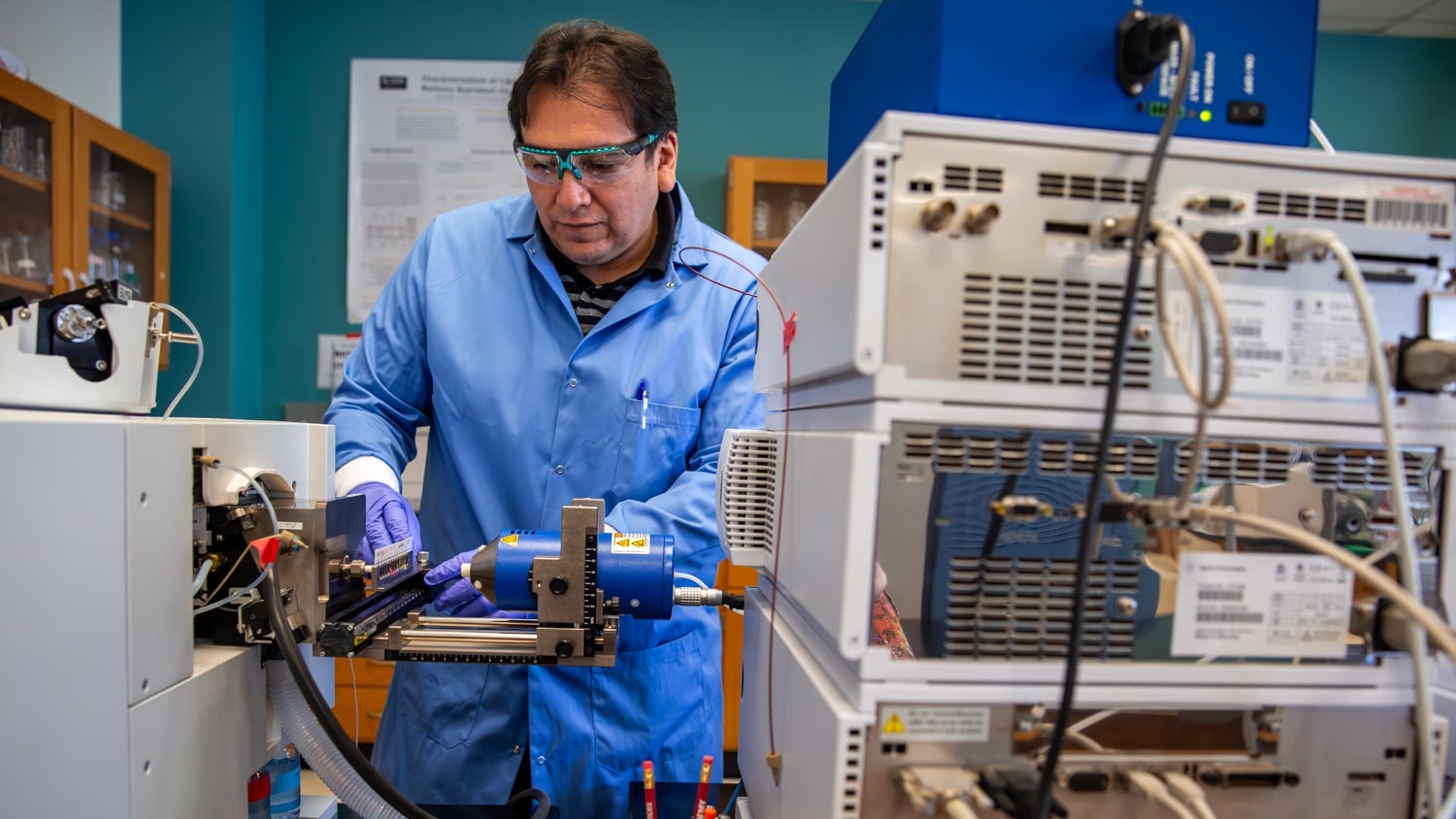Do you have an amazing idea to increase student engagement but cannot spare the time to act on it? Do you have a course ready to migrate to an online format and need help? Are you eager to deploy the latest technologies in your course? Are you trying to reduce the number of D’s, F’s and W’s for your large courses?
If you answered yes to any of these questions, applying for NC State’s DELTA Grants could be the answer.
Collaborating with DELTA to explore and implement action is a good return on your time investment. Through the competitive awards program for NC State faculty and staff, selected recipients receive crucial resources toward creating innovative solutions to their instructional challenges.
As a grant recipient, faculty gain access to a team of DELTA staff who invest the time with you to devise a path toward successful outcomes. Faculty members benefit by investing less time than they would if they were creating a project or product on their own. And, each grant team establishes a timeline to reach project goals.
DELTA blends best practices and pedagogy to work with faculty toward a solution. Faculty do not have to do all the legwork, nor do they need to have the specifics of how to proceed in the initial proposal.
What DELTA provides is our staff time and expertise in instructional design and technology, multimedia design and deep knowledge of our campus learning management systems.
What Does DELTA Look for in the Proposals?
Successful proposals will convey the specific instructional challenges of their courses or what the creation of a new technology product will do to enhance the learning experience for students. Faculty should include information on the way they envision working with DELTA in their proposals, as well.
Faculty are the subject matter experts and are heavily involved in the process through project completion. For some grants, DELTA staff members deconstruct the current course by honing in on the learning objectives.
After grant recipients are announced, they attend an orientation and are assigned working teams which may include instructional designers, multimedia designers, informational technology staff, and more, depending on the goals of each grant proposal.
Faculty who have been awarded grants say the value added by collaborating with DELTA translates to much more than having their proposal work completed.
Recent DELTA Grants recipients shared some concrete benefits of participating in the DELTA Grants program.
The DELTA Experience
Professor of Forestry and Operations Research Joseph P. Roise received a DELTA grant for an online course in Fire Ecology along with colleagues Christopher Moorman and Jennifer Costanza. Roise explained how exciting witnessing fire ecology and its effects are in the field; however, he was challenged with the logistics of sharing this experience with his online students. With the DELTA grant, Roise and colleagues were able to overcome that challenge with the use of creative instructional videos and 360° videos.
Completing the project was enjoyable experience that his team looked forward to.
“They held our hands and helped us through the whole process,” he says.
Roise’s project built on the eFire project and created a fully online Fire Ecology course. The inclusion of the 360° videos complement the additional live webinars, personable faculty introductions and student-created video research projects the course utilizes. These videos have become shining segments of the Fire Ecology experience.
“The use of virtual field trips have caught the attention of several people who want to use them,” Roise says.
Student Response
Teaching Assistant Professor Peter Hessling worked with DELTA on a graduate-level course, ED 534.
“For the first time, my online course evaluations have been higher than my face-to-face evaluations,” he says. “My course is easier to manage and takes a lot less preparation to get it ready each semester. But it gets more accomplished and I’m convinced that my students are learning much more than they did prior to the redesign.”
In addition, Hessling “has been incorporating elements of my online sections into my face-to-face classes. I’ve been able to transfer skills I learned in this yearlong revision process to other projects.”
He mentions Moodle and Google tools as well as newly acquired video skills.
“Perhaps the most valuable long-term result for me personally was greater confidence trying and using technology in productive ways,” he says.
Hessling and Dan Dunnagan, instructional designer at DELTA, led a poster presentation at an international conference and the duo presented at an Appalachian State University’s Free Learning Conference in 2015.
His new-found confidence with technology led Hessling to join the International Society for Technology in Education (ISTE) which he is now the social media coordinator in the Teacher Education Network special interest group.
“I never would have considered doing something like that without my DELTA experience,” says Hessling.
Another collaborator, teaching assistant professor Angie Smith, echoes praise for the rewarding relationships with DELTA staff and administration during the process.
Smith and her DELTA team created a Group Counseling course, ECD 534, with her grant.
“The students feedback was extremely positive and they indicated they felt connected during the course, even though they were not physically in the same place. This was one of my main goals when implementing the grant,” says Smith.
Multiple Uses
Replacing expensive equipment that is difficult to read in physics labs is what led teaching assistant professor Colleen Countryman to seek DELTA’s assistance in developing a free mobile app for her students to conduct experiments.
While a graduate teaching assistant, Countryman received an initial exploratory DELTA Grant in the 2014-2015 cycle. A DELTA team assembled to create a mobile app, which used focus groups and testing to inform the development of the final product.
In 2015-2016 the grant was extended to conduct research and tweak the app based on student feedback.
According to Countryman, the familiarity with smartphones plays a large part in the popularity of the My Tech app, developed to assist students with experiments in lieu of expensive laboratory equipment. Now students are able to conduct experiments anywhere, and response has been tremendous.
“My experience with DELTA has led to several research presentations, and the product of my experience (the MyTech app and corresponding curriculum) is being widely used in our introductory Physics curriculum,” says Countryman.
If you have an idea for a DELTA Grant, please sign up for one of DELTA’s informational workshops or group consultations on the DELTA Grants website. Proposal submissions are due by 5 p.m. on May 5.
If you have questions regarding the proposal process, please email deltagrants@ncsu.edu. Be sure to visit our 2015-16 DELTA Annual Report for more examples.
- Categories:



